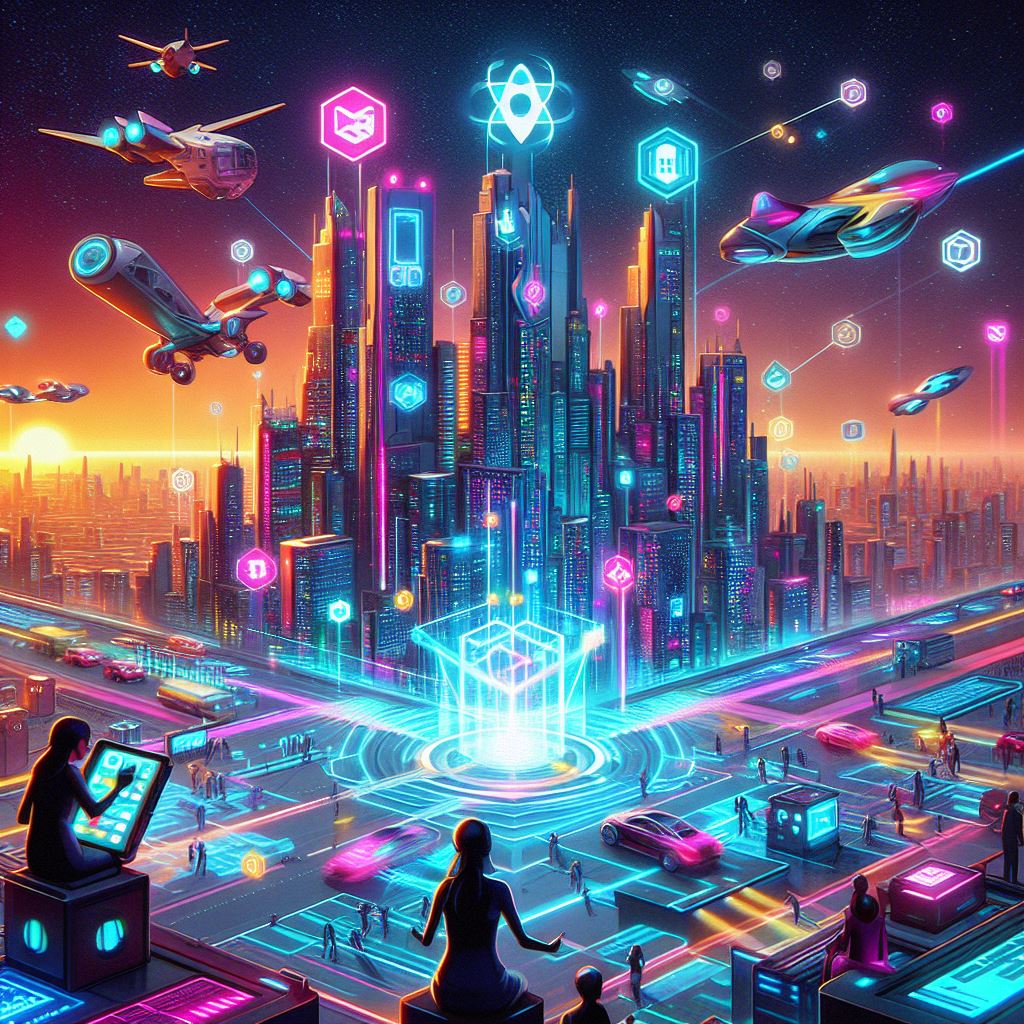In the fast-paced world of blockchain technology, Solana has emerged as a shining star, offering a revolutionary approach to scalability and speed. As we delve into the intricacies of the Solana blockchain, we’ll explore how it is reshaping the landscape of decentralized finance (DeFi) and the broader blockchain ecosystem.
Speed Unleashed: The Solana Advantage
Imagine a bustling highway where traditional blockchains are akin to congested lanes, slowing down transactions and increasing fees. Enter Solana, the expressway of the blockchain world, boasting a breakthrough consensus mechanism called Proof of History (PoH). This innovative approach timestamps transactions before they are included in a block, eliminating the need for nodes to reach consensus on the order of transactions. As a result, Solana achieves mind-boggling transaction speeds of over 50,000 transactions per second, leaving competitors in the dust.
To illustrate, consider traditional blockchains as busy airports with limited runways, causing delays and frustrating passengers. Solana, on the other hand, is a futuristic spaceport with multiple runways, ensuring a seamless flow of traffic and quick take-offs.
Debunking the Scalability Myth
Scalability has long been the Achilles’ heel of many blockchains, leading to congestion during peak times. Solana, however, sidesteps this issue with its unique sharding approach. Sharding involves dividing the network into smaller parts, or shards, each capable of processing transactions independently. This means that as the Solana network grows, its capacity to handle transactions scales effortlessly.
Think of traditional blockchains as single-threaded processors, struggling to handle multiple tasks simultaneously. Solana, with its sharding architecture, is a multi-threaded powerhouse, effortlessly managing numerous transactions concurrently.
Eradicating High Transaction Costs
One of the notable advantages of Solana is its commitment to keeping transaction costs low. While some blockchains experience skyrocketing fees during periods of high demand, Solana remains cost-effective, making it an attractive option for developers and users alike.
To draw a comparison, traditional blockchains with exorbitant fees are like expensive toll roads, deterring users from the journey. Solana, however, offers a toll-free highway, making it an inclusive and accessible route for all.
Building Bridges: Solana and DeFi
The Solana blockchain has become a preferred playground for decentralized finance applications. Its speed and low costs make it an ideal platform for DeFi projects seeking to provide users with seamless and affordable financial services. Solana’s compatibility with Ethereum’s ecosystem is an additional feather in its cap, allowing for easy migration and interoperability.
Think of Solana as the universal translator of the blockchain realm, seamlessly connecting different blockchain languages and facilitating a harmonious exchange of assets and information.
Conclusion: The Solana Horizon Beckons
In the ever-evolving landscape of blockchain technology, Solana stands tall as a beacon of innovation. Its speed, scalability, and cost-effectiveness are reshaping the digital frontier, paving the way for a new era of decentralized possibilities. As the Solana ecosystem continues to expand, its impact on the broader blockchain space is undeniable, heralding a swift revolution in digital finance.
Example Usage of Solana: The Rise of a Decentralized Gaming Ecosystem
In the dynamic realm of blockchain applications, Solana has found a unique niche in the gaming industry, demonstrating its prowess in creating decentralized ecosystems. Let’s delve into an example scenario to understand how Solana is shaping the future of decentralized gaming.
Scenario: Decentralized In-Game Assets
Imagine a virtual gaming universe where players can truly own and trade in-game assets. Traditional gaming platforms often restrict users from fully owning the digital items they acquire in a game. However, with Solana’s blockchain, developers can create games where in-game assets are tokenized as non-fungible tokens (NFTs).
